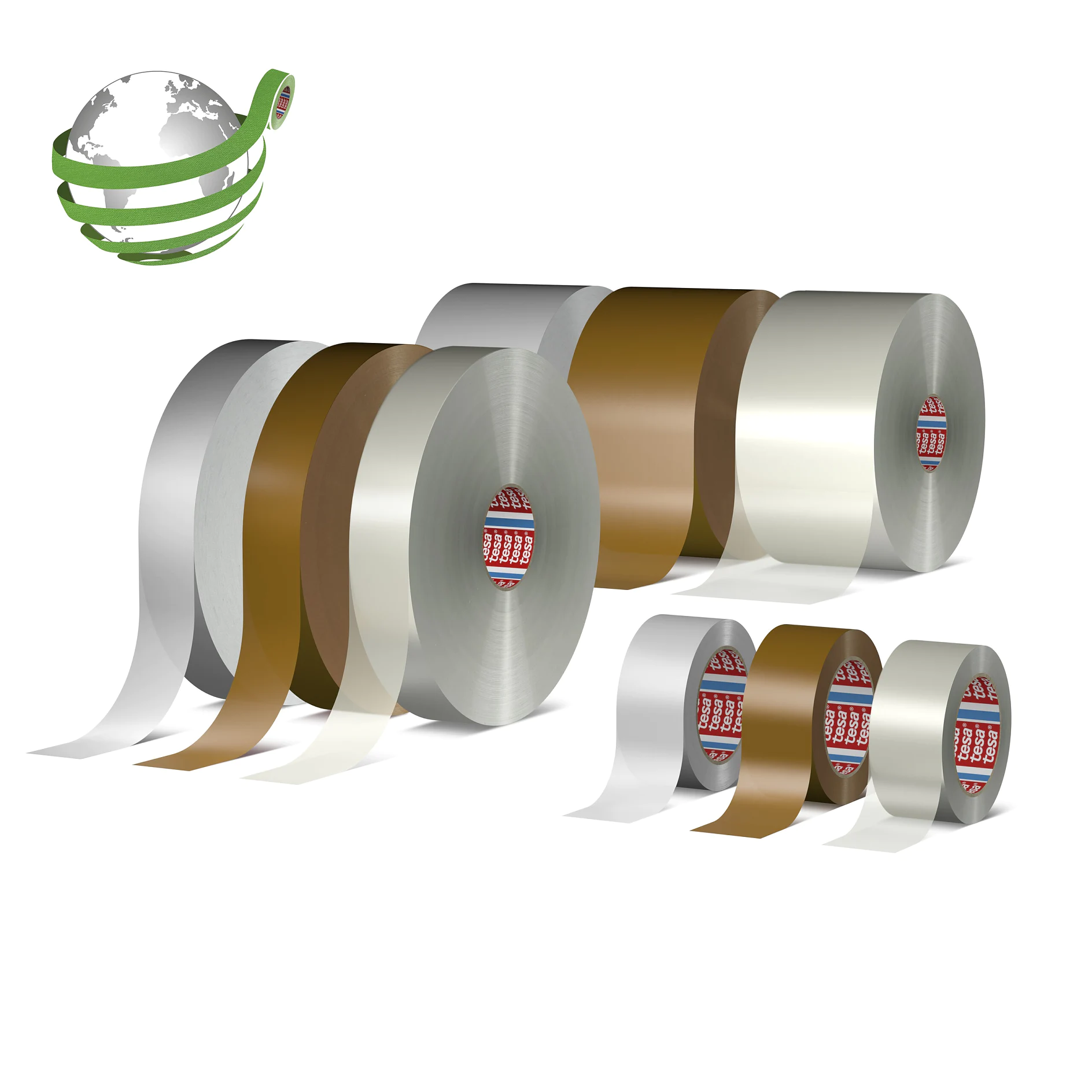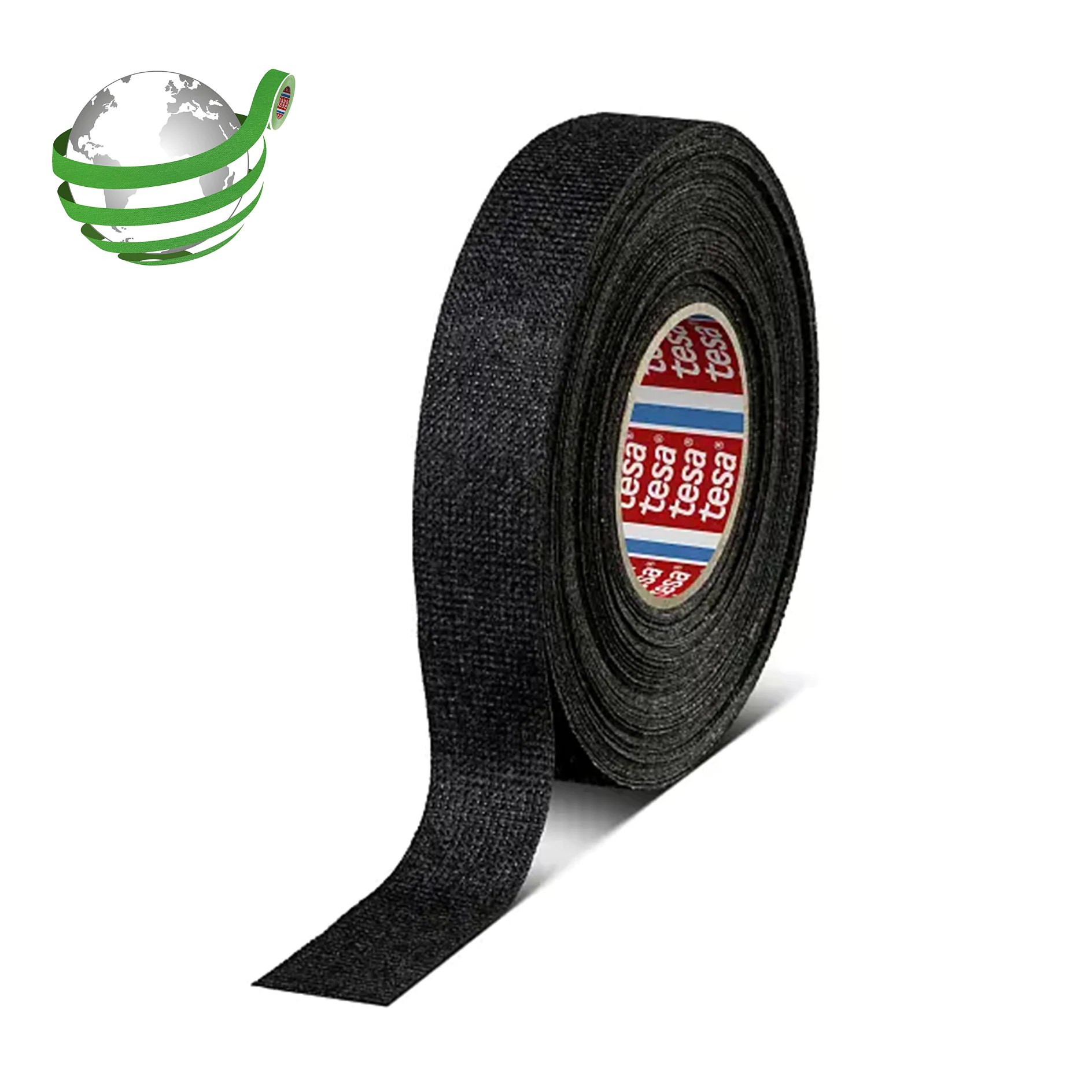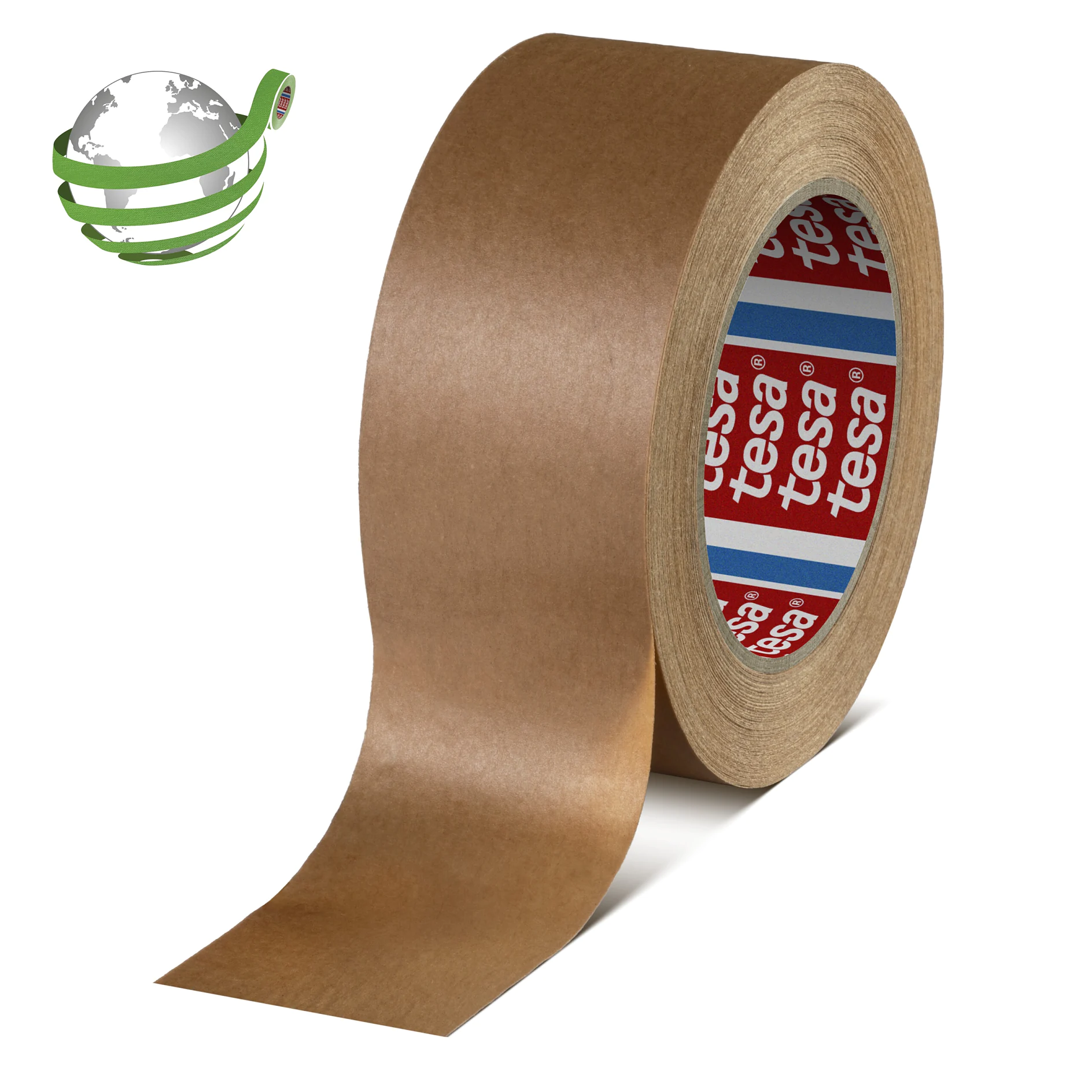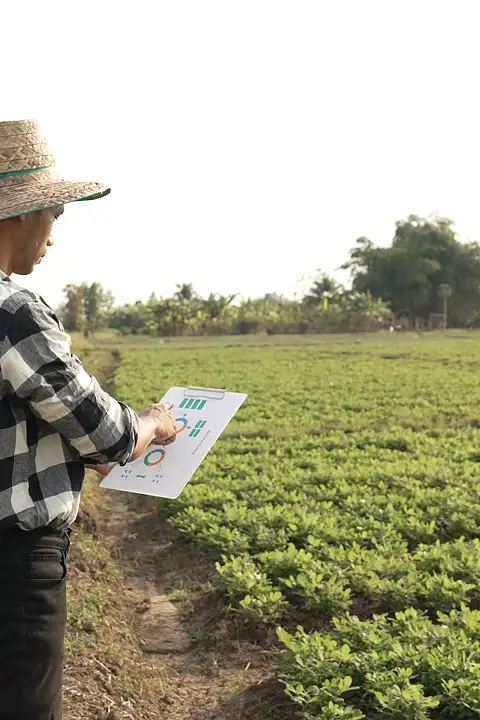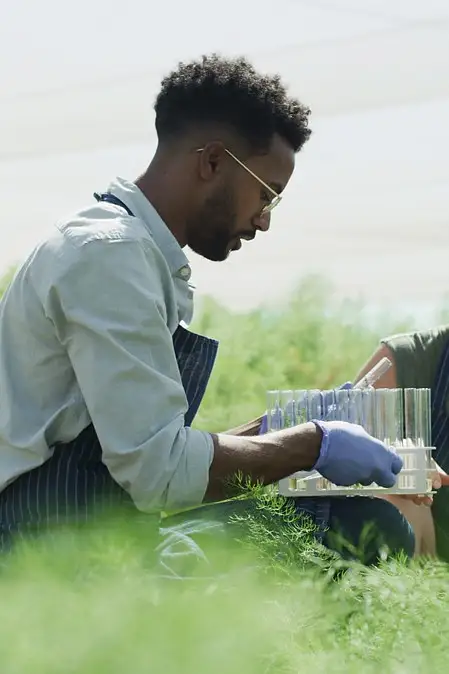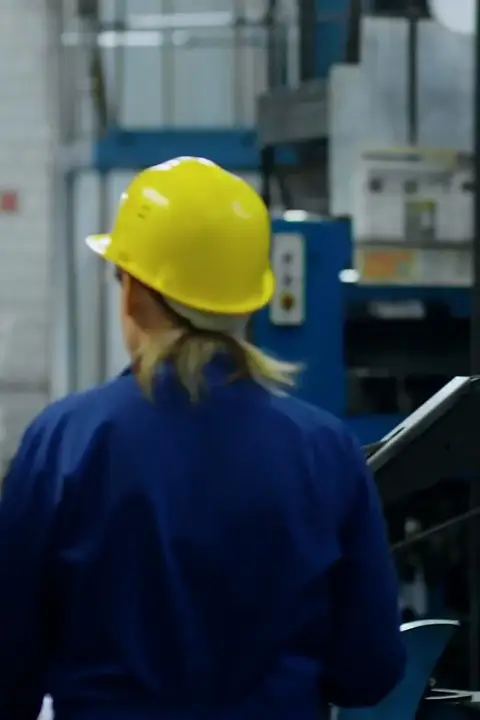Everything is being put to the test, from plants and production processes to products, supply chains and raw materials. The ongoing transformation processes do not stop at our "classics. Quite the contrary: Pioneers in tesa adhesive tape technology, such as tesa® 4965 and tesafilm® Eco & Crystal, demonstrate what is possible through intelligent and innovative changes as we increasingly rely on recycled and bio-based materials. The new generation of tried-and-true adhesive tapes makes no compromises in terms of reliability and quality, and at the same time takes into account the growing importance of sustainability for our customers and stakeholders.
Ambitious goals, many steps. For a new generation of adhesive tapes.
Sustainability
Highest product quality, lower CO₂ emissions in the value chain, more sustainability in our range: we have set ourselves ambitious goals and are pursuing them consistently.
tesa® 4965 – a new, more sustainable edition of a legend
The "red tape" has been our successful multitasker for over forty years. Dozens of industries and applications worldwide rely on tesa® 4965 Original for double-sided bonding. We wanted to make the legend even better. Because we know: If a successful all-rounder like tesa® 4965 can become significantly more sustainable without any loss of quality, then we have achieved a particularly big impact - and created a role model. That's why we now have tesa® 4965 Original Next Gen. With the same chemical and mechanical properties as the original, but with a significantly reduced carbon footprint.
40 %
less CO₂1
1 Product Carbon Footprint (PCF) reduction for the new tesa® 4965 Original Next Gen (50m x 50mm handroll, PV0: red MOPP liner) compared to the current tesa® 4965 Original (50m x 50mm handroll, PV0: red MOPP liner) calculated in 2023 with Cradle-to-Gate values including biogenic carbon uptake. Individual PCF values for the other liner types (PV1, PV2, PV4) and further information you can find in our ISO 14067-compliant comparative PCF calculation on tesa.com/4965-report
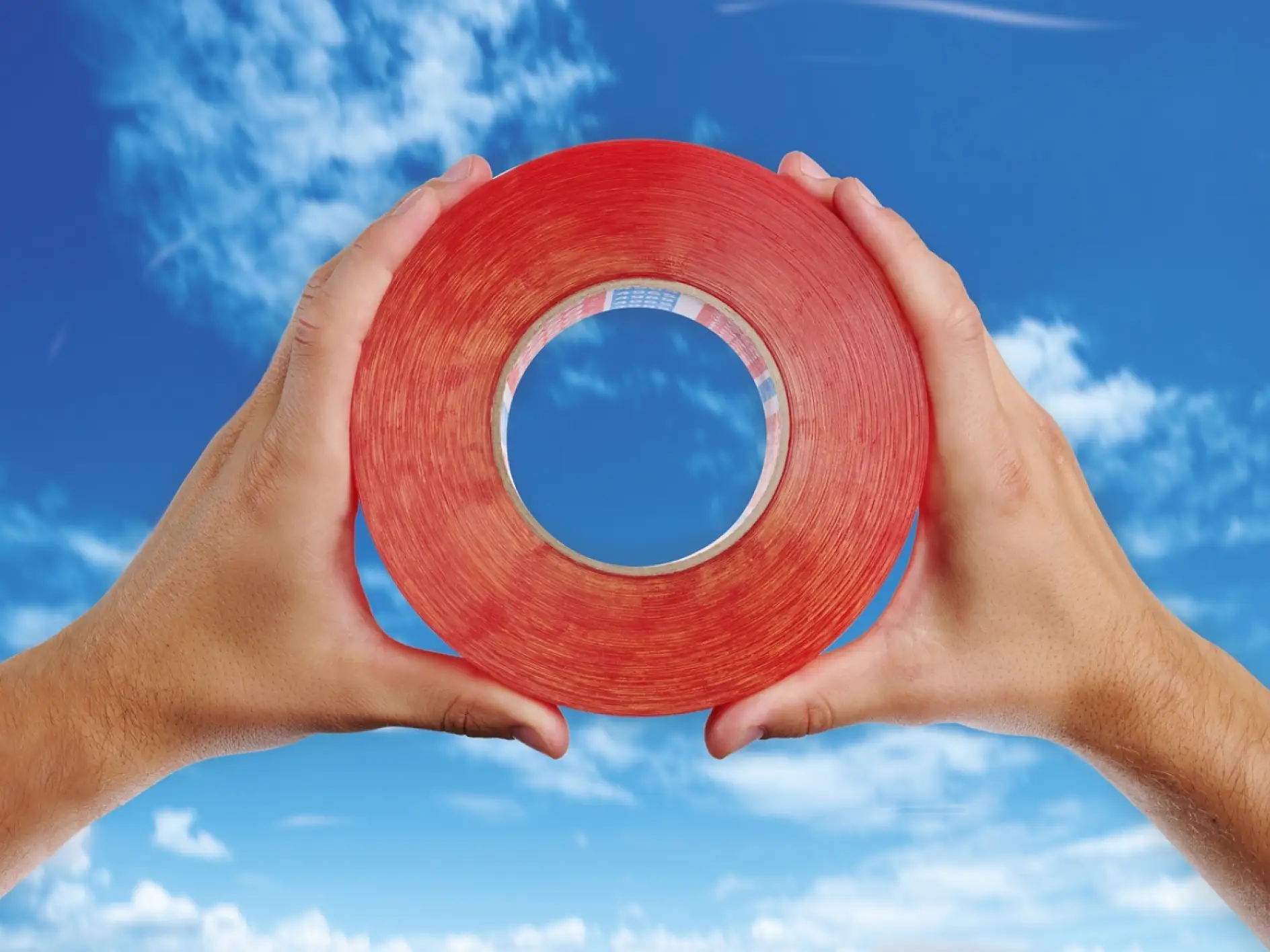
The leverage
Our goal is to recycle or use bio-based materials for 70% of our products and packaging by 2030, and to reduce our indirect emissions (Scope 3) by one-fifth compared to 2018. We are convinced that even small steps can have a big impact. At the same time, our developers are working hard to identify potential advances that will have a particularly large leverage effect on the transformation toward greater sustainability. The substitution of new fossil raw materials in the development and production of adhesive tape solutions plays a decisive role in this. "The future lies in a mix of recycled and biobased materials and, in the long term, in the use of technologies to capture and utilize CO2 from the environment," says Michel Mies, Head of Product Development Business Unit Industrial Trade and Converting.
Selected tesa goals by 2030
of purchased material are recycled or bio-based
less CO₂ emissions in scope 3 compared to 2018
90% PCR backing - tesafilm® Eco & Crystal
Our classic consumer product, tesafilm®, has an even longer history than the "red tape". It was introduced in the thirties of the 20th century. But you wouldn't know it from looking at it, because over the years it has always kept up with changing times - most recently by undergoing a makeover to make it more sustainable, and since then it has also been on the market as tesafilm® Eco & Crystal. Like its predecessor, tesafilm®, tesafilm® Eco & Crystal is solvent-free and features high transparency, versatility, and strong adhesion.
The tape combines the familiar properties of classic tesafilm® with a new backing material made from 90% recycled PET. In addition, the core of the tape is made entirely from recycled plastic. "tesafilm® has undergone many evolutionary steps over the years and continues to play a key role for us in driving the transformation of adhesive tape technology step by step and making it visible on the market," says Michel Mies, Head of Product Development Business Unit Industrial Trade and Converting.90 % PCR-Trägermaterial – tesafilm® eco & crystal.
Transformation as a work in progress: the example of tesafilm® Eco & Crystal
For tesafilm® Eco & Crystal, all components of the tesafilm® range were tested for their potential to change. The 90% PCR-PET content in the backing of the new tesafilm® Eco & Crystal has been certified by UL Solutions in accordance with UL ECVP 2809-2.
In addition, the product can be disposed of with the packaging in the waste paper stream without compromising the cardboard recycling process (recyclability tested according to INGEDE method 12).
The packaging materials in the range have also been further developed and most have a recycled paper content of 80 to 100%. The blister caps of the packaging are made of 100% PCR-PET. Individual packaging formats that have not yet been converted will be gradually replaced with more sustainable alternatives.
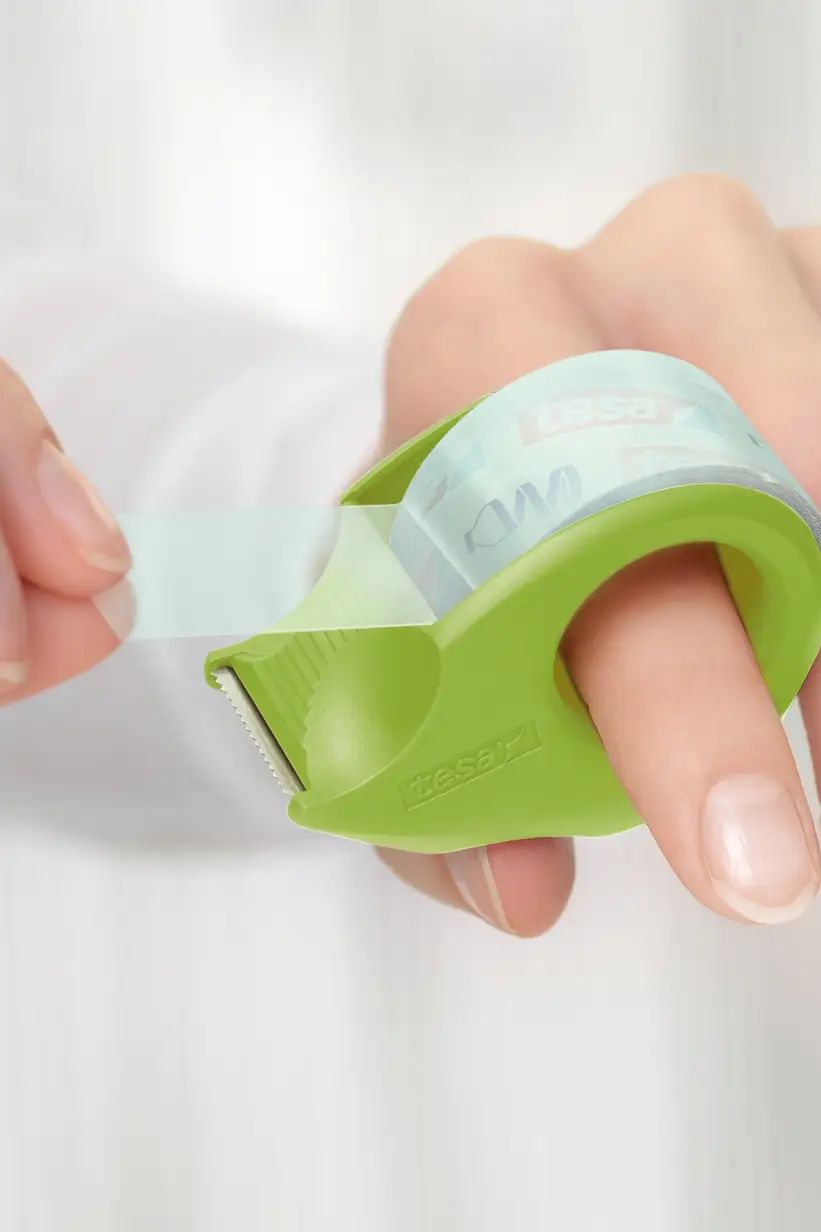
Find out more about tesa’s sustainability strategy
We do: Rethink materials
tesa has set itself the goal of significantly increasing product sustainability and is working on this every day. Over the next few years, for example, we will be developing many new products that make a sustainable contribution to our top product ranges in the automotive, electrical, and construction industries, as well as for our consumers in the office and home. In doing so, we are focusing on the reduction of non-recycled fossil plastics and will increasingly use recycled and bio-based materials.
